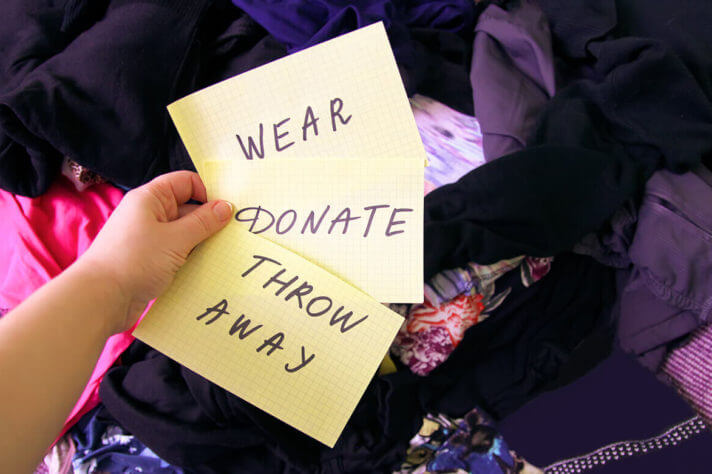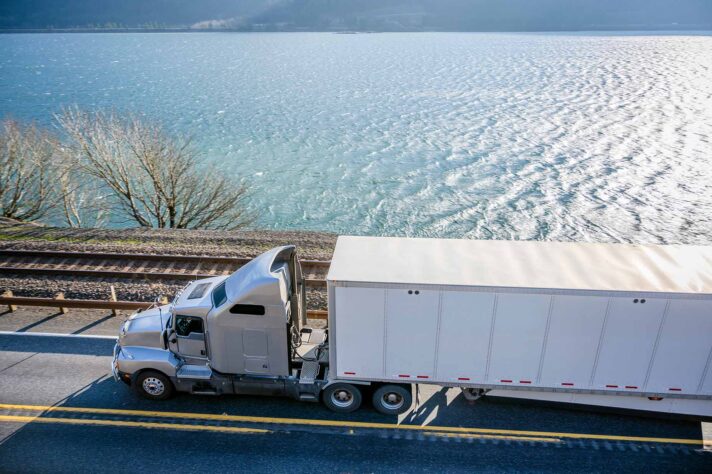So, when should you start packing to move? The ideal time to start is several weeks before your moving day. Starting early gives you ample time to organize your belongings, declutter, and pack systematically. By beginning the process ahead of time, you can alleviate stress. However, it’s important to adjust the timeline based on the size of your household, the complexity of the relocation, and any other specific circumstances.
When to Start Packing for a Move? A Timeline Guide
Are you planning to leave your hometown? Do you know when to start packing for a move? Look no further than our comprehensive timeline guide, designed to help you navigate the challenging task of boxing everything up efficiently. Determining the optimal time to begin the packaging process is crucial for a stress-free relocation experience, and our guide is here to provide you with valuable insights and practical tips.


First Things First – Determining the Move-Out Date
When embarking on the journey of relocation, it is crucial to determine the move-out date as early as possible. This serves as the foundation for a smooth transition to your new home. Planning ahead enables you to adequately prepare for cross-country movers and mitigate relocation stress.
Begin by assessing your timeline and considering any commitments or obligations you may have around the relocation day. Take into account factors such as lease agreements, work schedules, and school terms.
Once the date is set, you can start organizing everything, ensuring you have sufficient time to pack, coordinate logistics, and make the necessary arrangements for a successful transition.
Evaluate the Size and Complexity of the Relocation
This assessment will help you understand the scope of the task at hand and make informed decisions. If you are relocating large items or have a significant amount of belongings, it may be beneficial to contact professional long-distance movers who specialize in handling such moves.
If you are moving to another city alone, consider the logistical challenges and resources required to accomplish the relocation effectively. To organize a move efficiently, create a checklist of tasks, including inventorying your possessions, decluttering unnecessary items, and determining the appropriate transportation and packaging methods.


What Should You Do Six Weeks Before the Relocation
Relocating can be an overwhelming experience, and the fear of moving cross country coupled with packaging procrastination often leaves people feeling stressed. However, by starting the preparation process six weeks before the relocation, you can alleviate much of that anxiety.
One crucial step during this timeframe is sorting and decluttering your belongings. Evaluate your possessions and determine what items are essential to keep with you in your new home. This process not only helps you reduce the overall volume of your belongings but also allows you to donate unwanted items to the Salvation Army.
Sorting and Decluttering
When you’re six weeks away from your relocation, it’s the perfect time to tackle sorting and decluttering. Break the process down into manageable steps. Identify what to keep, donate, or discard.
By making deliberate decisions about each item, you can reduce the volume of your possessions and ensure a more organized relocation. Use this opportunity to streamline your belongings, throw away items, and create a fresh start in your new home.
Watch the video below for creative and genius decluttering tips.
What Should You Do Four Weeks Before the Relocation
As the moving day draws closer, there are several important tasks to tackle four weeks before your cross-country relocation. These relocation tips will help you stay organized and ensure a smoother transition to your new home. One crucial task is to gather supplies.
Having the right packing materials for moving is essential to protect your belongings during transportation. Stock up on different materials such as sturdy boxes, bubble wrap, tape, and paper. By preparing these supplies in advance, you can make moving easy and save yourself from last-minute relocation anxiety.
Gathering Packing Supplies
Gather a variety of materials and supplies to ensure the safe transportation of your belongings. Invest in sturdy boxes of different sizes to accommodate items of various shapes and sizes. Bubble wrap is ideal for fragile items, providing an extra layer of protection.
The tape will securely seal your boxes, preventing any accidental openings during transit. On top of this, paper can be used to wrap delicate items and fill in empty spaces to prevent shifting.


What Should You Do Three Weeks Before the Relocation
It’s crucial to begin implementing a well-organized packaging strategy to ensure a hassle-free transition to your new home. Begin by creating a detailed inventory of your belongings and sorting them into categories based on their type or room.
Additionally, consider planning a packaging party, where you invite friends or family to assist you in the process. Not only does this make it more enjoyable, but it also allows you to delegate tasks and speed up the entire process. Make sure to provide snacks and refreshments to keep everyone energized.
Creating a Packing Plan
Start by conducting a thorough home inventory, going through each room, and making a list of all the items you plan to take with you. Once you have your home inventory, it’s important to prioritize packaging fragile items. Gather delicate belongings such as glassware, artwork, and electronics, and set them aside for special care.
Next, develop a room-by-room packaging strategy. Begin with rooms that are less frequently used, such as guest bedrooms or storage areas. Pack non-essential items and label the boxes accordingly to make unpacking smooth. Gradually box up the items from more frequently used rooms.
Consider Hiring Long Distance Movers to Help You
When the prospect of a long-distance relocation seems overwhelming, and you’re unsure where to begin, the best course of action is to leave everything in the capable hands of a professional long-distance moving company.
Investing in cross-country moving services can alleviate the stress and complexities associated with a major relocation. These experienced movers have the knowledge, expertise, and resources to handle every aspect of your relocation, from packaging and loading to transportation and unloading at your new destination. They can provide you with a tailored relocation plan, ensuring that your belongings are securely packed, properly labeled, and transported safely.
Moving
Our mission is to bring high quality, long distance moving services to every customer.
Packing
Our expert moving teams are trained to ensure the safety of your personal belongings.

Auto Transport
Cross Country Moving Company is the most trusted name in auto industry in the country.
What Should You Do Two Weeks Before the Relocation
It’s time to kick your preparations into high gear. Start by notifying relevant parties of your upcoming change in address, such as your utility providers, insurance companies, and any subscription services you may have. Begin boxing up non-essential items that you won’t need in the immediate future.
It’s also a good idea to confirm the details with your chosen cross-country moving company, ensuring that everything is on track for the big day. Lastly, take this opportunity to start using up perishable food items to minimize waste and make your refrigerator easier to clean and relocate.
Packing Non-Essential Items
Begin by going through each room and identifying belongings that fall into this category. It can include:
- Extra linens,
- Off-season clothing,
- Sentimental items with minimal daily use,
- Decorative pieces.
Carefully pack these items into sturdy boxes, using appropriate materials to protect fragile or delicate items. Label each box clearly with its contents and the room it belongs to, making it easier to prioritize unpacking when you reach your new home.


What Should You Do One Week Before the Relocation
One week before the date, focus on finalizing the remaining tasks. Confirm the moving date and time with your chosen relocation company. Pack a suitcase with essential items you’ll need during the transition period, such as clothes, toiletries, and important documents.
Take care of any necessary paperwork, like transferring utilities and updating your address. Begin packaging everyday items that you use regularly but can do without for a few days. Keep a separate box for important documents and valuables to ensure their safety.
Packing Everyday Items
These are the belongings you use on a daily basis, such as kitchen utensils, clothing, and personal care items. Begin by organizing similar items together and placing them in appropriately sized boxes. Label each box with relocation labels specifying its contents and the designated room. Keep a separate box or bag for essentials you’ll need right away once you get to a new home, such as clothes and toiletries.


How to Be Ready for the Moving Day
Suppose you have invested in long-distance moving services that specialize in handling the logistics of cross-country relocations. This will make the process more relaxed. Mover’s expertise and experience can significantly alleviate the stress and challenges associated with long-distance moves.
Make sure to communicate clearly with the movers, providing them with all the necessary details and instructions. Don’t forget to tip them for their hard work and effort. By being proactive and having the best team of cross-country movers by your side, you can be ready for the relocation day with confidence.
Have Essential Items Survival Kit Ready
This kit should include all the necessities you’ll need during the transition period. Pack toiletries, a change of clothes, important documents, and any medications you may require. Include some basic cleaning supplies, snacks, and water bottles to keep you refreshed.
It’s also helpful to have chargers for your electronic devices readily available. With a survival kit at hand, you can easily access the essentials and maintain a sense of comfort amidst the chaos of moving.


Knowing When to Start Packing for a Move Will Make the Relocation Process Easy
Now you know when to start packaging to move! Follow a well-structured timeline and tackle each phase of packaging systematically, allowing for efficient organization and minimal disruption to your daily life. Remember to start early, especially for long-distance moves, to avoid last-minute rushes and potential mishaps.
And when things begin to feel overwhelming, don’t hesitate to reach out to trusted cross-country moving companies. Their expertise and comprehensive services can greatly alleviate the burden of the relocation, ensuring a seamless transition to your new home. Contact Cross Country Moving Company today and let us provide you with expert cross-country moving service as well as packing services while you focus on the excitement of your new chapter.
FAQ
Is There a Universal Timeline for When to Start Packing for a Relocation?
While there is no one-size-fits-all answer, it’s generally recommended to begin the process at least several weeks before your moving day. The exact timeline will depend on factors such as the size of your household, the number of belongings you have, and the complexity of your relocation. Starting early allows you to pack gradually, room by room, and reduces the stress of last-minute rushing.
Can I Start Packing Earlier if I Have a Large Household or Complex Relocation?
Absolutely! If you have a large household or a complex transition, it’s wise to start boxing everything up even earlier than the suggested timeline. With more belongings to sort through and potentially more logistical challenges to navigate, beginning the packaging process well in advance will give you ample time to tackle each task methodically. It allows for careful planning and efficient packaging and helps minimize any potential last-minute complications.
What Should I Consider When Deciding What to Pack First?
When deciding what to pack first, it’s advisable, to begin with items that are non-essential and used infrequently. This can include seasonal clothing, decor, extra linens, and rarely-used kitchen gadgets.
By doing this, you’ll free up space and reduce clutter in your living areas. Additionally, consider boxing up items from rooms that are used less frequently, such as spare bedrooms or the basement. This approach allows you to maintain functionality in your daily life.
What Items Should I Pack Last or Keep Out Until Moving Day?
Troubled with the question – when should I start packing to move? We recommend focusing on non-essentials a couple of weeks before the date of the relocation and then leaving essentials that you’ll need as soon as you arrive at your new home for later. These may include toiletries, a change of clothes, basic kitchen supplies, important documents, and any items necessary for your daily routine.
Should I Hire Professional Packers or Pack Everything Myself?
The decision to hire professional packers or pack everything yourself depends on various factors such as your budget, time constraints, and the complexity of everything. Professional packers can offer expertise and efficiency and save you time and effort.
They have the necessary skills to handle delicate or valuable items and ensure that everything is packed securely. However, if you have a smaller relocation or prefer to have full control over the packaging process, packaging yourself can be a viable option.
Can I Start Packing Before Finding a New Home?
Yes, you can start the process before finding a new home. If you’re planning to relocate and have already decided to relocate, you can begin the process by sorting and boxing up items that you know you won’t need in the immediate future. These can include off-season clothing, books, decor, and non-essential items. However, a top priority should be staying organized.
What if I Need to Relocate On Short Notice? How Should I Adjust the Packing Timeline?
In such situations, it’s essential to prioritize and focus on the most important items first. Start by packaging essential items like clothing, toiletries, and important documents. Then, gradually move on to other necessities based on their importance and usage. If time is extremely limited, consider enlisting the help of friends or hiring professional packers to expedite the process.
How Can I Manage the Stress of Packing and Moving Within a Tight Timeline?
Break down the entire process into smaller tasks and create a schedule or checklist to keep track of your progress. Delegate tasks to family members or friends to lighten the load. Take breaks and practice self-care to reduce stress. Try to stay flexible and adaptable, as unexpected challenges may arise. Remember to ask for help when needed and focus on the end goal of settling into your new home.
Is It Better to Start Packing Gradually or Have a Dedicated Packing Week?
Starting gradually allows you to spread out the workload over a longer period, reducing the pressure and allowing for better organization. On the other hand, a dedicated week can provide a focused and intensive effort to complete the task quickly. Consider your available time, energy levels, and other commitments when deciding which approach works best for you.
What Can I Do if I Underestimated the Time Needed for Packing?
If you underestimated the time needed for packaging, don’t panic. Assess your current progress and adjust your timeline accordingly. Prioritize the remaining tasks and focus on packaging the most important items first. Consider asking for help from friends or family members to expedite the process. If necessary, you can also reach out to professional packers who can efficiently handle the remaining packaging tasks. Stay organized, stay positive, and remember that adaptability is key when faced with unexpected challenges.








